The Immigration Act of 1965, allowed Asian family members, entrepreneurs and skilled workers to immigrate to the U.S. Crossing East shows how each Asian group found a special field of work and offered their expertise and skills to a burgeoning economy.
Listen: Crossing East Program 6 -Post ’65 Generation
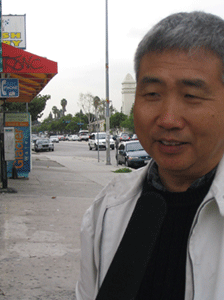 Segment One: A Grocer’s Life
Segment One: A Grocer’s Life
Don Myoung runs the Trojan Market in Los Angeles. Don immigrated to America in 1971 when he was 22. A college student in Korea, he worked as a computer technician for a while. But his English was limited so he left the job. His wife, Floria, came a few years later. She was a schoolteacher in Korea but didn’t speak English well enough to get a job here. So they bought a mom and pop store in 1982 in a low-income neighborhood. Most Korean immigrants after 1965 were college educated, but because of language barriers they had to find new ways to support themselves in the U.S. Today more than one million Korean Americans live in the U.S. Los Angeles has the largest Korean population outside of Korea. Nearly 30 percent are self-employed and businesses like Don and Floria Myoung’s market. Forty-five percent are small grocery and liquor stores.
Acknowledgements:
Don and Floria Myoung, Isaac Romero, and employees and customers of the Trojan Meat Market.
Produced by Dmae Roberts with Contributor Miae Kim
Segment One: A Grocer’s Life Archival Material
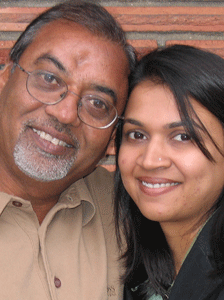 Segment Two: Family Business
Segment Two: Family Business
The 1965 Immigration Act made it possible for families to reunite and live together in the U.S. And many of them worked together. The Apache Motel is located on a busy street in Chicago. It’s one of thousands in the U-S owned by South Asian immigrants. According to the Asian American Hotel Owners Association, more than a third of hotels and motels in the country are owned by Asian American entrepreneurs like Manu Patel.
Acknowledgements:
Manu and Kruti Patel of the Apache Hotel.
Produced by Catrin Einhorn with Contributor Scotty Iseri
Segment Two: Family Business Archival Material
Segment Three: In Her Own Words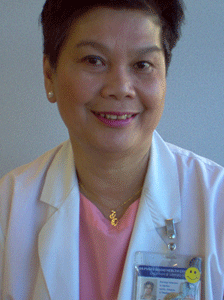
The 1965 Immigration Act made it possible for families to reunite and live together in the U.S. And many of them worked together. The Apache Motel is located on a busy street in Chicago. It’s one of thousands in the U-S owned by South Asian immigrants. According to the Asian American Hotel Owners Association, more than a third of hotels and motels in the country are owned by Asian American entrepreneurs like Manu Patel.
Acknowledgements:
Manu and Kruti Patel of the Apache Hotel.
Produced by Catrin Einhorn with Contributor Scotty Iseri
Segment Three: In Her Own Words Archival Material
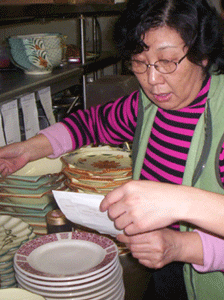 Segment Four: The Teahouse
Segment Four: The Teahouse
For many immigrants from China, running a restaurant has often been the only way for families to earn a living. The first Chinese restaurants started in California in the mid 1800s. Now go to any city or small town in the U-S. Chances are you’ll find a Chinese restaurant. Chinese restaurant families are an American tradition. After the 1965 Immigration act, new arrivals from Hong Kong, Taiwan and China followed the path of immigrants before them, starting family restaurants. In Plymouth, Minnesota, near Minneapolis, two sisters run The Tea House Restaurant. Yolanda Wang and Melissa Ho arrived in the late 80’s from Anqing, [ahn-ching] in east central China. The sisters had completed college when they arrived, along with their mother, father and four other sisters. Sadly, within a year of arriving, their father died of cancer. Yolanda and Melissa found that running a Chinese restaurant was their best hope of earning a living.
Acknowledgements:
Yolanda Wang and Melissa Ho and their families.
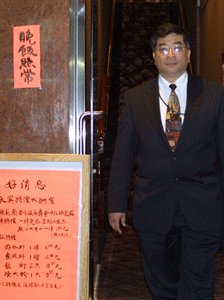 Segment Five: The Paradox of the Fujianese
Segment Five: The Paradox of the Fujianese
William Chu heads one of New York Chinatown’s biggest community associations. Immigrants from Fuzhou, Cantonese for the Fujian province, now make up the majority in Chinatown. Fujianese immigrants were left out of the 1965 immigration reforms because they had few relatives in the US. So, like the exploited coolie laborers of the 1800s, they come here seeking a better life, but face discrimination and harsh conditions.
Acknowledgements:
William Chu, Profesor Bill Hing, NPR News Archives, Mr. Dong, Jimmy Cheng, Lana Cheung, and Kai Yu Chem.
